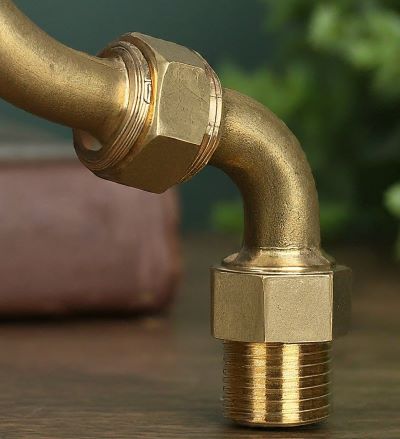Ever been in the middle of a repair job and realized you’re missing a crucial piece? It can be frustrating, especially when that missing piece is something as simple as an ORB plug.
But for mechanics, ORB plugs are anything but simple. They’re essential pieces that can save time, money, and even headaches.
What are ORB Plugs?
ORB stands for O-ring Boss. ORB plugs are essentially screw fittings with a built-in O-ring seal. The O-ring creates a tight seal that prevents leaks, while the screw threads allow the plug to be easily installed and removed.
ORB plugs are typically made of steel or brass for durability and can withstand high pressure. They come in a variety of sizes and thread patterns to fit a wide range of applications.
Why Every Mechanic Needs ORB Plugs
There are several reasons why ORB plugs are essential tools for mechanics:
➡️ Versatility: ORB plugs can be used in a variety of hydraulic and fluid systems, including brakes, power steering, and transmissions.
➡️ Leak prevention: The O-ring seal ensures that fluids don’t leak, which can prevent serious damage to a vehicle’s components.
➡️ Easy installation and removal: ORB plugs are easy to screw in and out, which saves time and effort during repairs.
➡️ Cost-effective solution: ORB plugs are a relatively inexpensive tool that can prevent costly repairs from leaks.
➡️ Durability: ORB plugs are made to withstand high pressure and harsh environments.
Not using ORB plugs can have serious consequences. Leaks can lead to fluid loss, which can damage a vehicle’s components. In some cases, leaks can even cause a vehicle to catch fire. Additionally, leaks can create a safety hazard, as they can make it difficult to control a vehicle.
Different Types of ORB Plugs
ORB plugs come in a variety of types to suit specific needs. The most common variations are:
➡️ Material: Steel ORB plugs are typically used for high-pressure applications, while brass ORB plugs are more resistant to corrosion.
➡️ Size and thread pattern: ORB plugs come in a variety of sizes and thread patterns to match the specific equipment they’re being used with. For example, metric ORB plugs are used with metric equipment, while imperial ORB plugs are used with imperial equipment.
It’s important to choose the right ORB plug for the job. Using the wrong size or thread pattern can result in leaks or damage to the equipment.
Where to Find ORB Plugs
ORB plugs can be found at a variety of retailers, including:
➡️ Auto parts stores
➡️ Online retailers
➡️ Industrial supply stores
When choosing an ORB plug, it’s important to buy from a reputable supplier. This will help ensure that you’re getting a high-quality product that will meet your needs.
Frequently Asked Questions (FAQ)
Q: How to choose the right ORB plug size and thread pattern?
A: The best way to choose the right ORB plug size and thread pattern is to consult the service manual for the specific piece of equipment you’re working on. The service manual will specify the size and thread pattern of the ORB plug that is required.
Q: What are some common applications of ORB plugs?
A: ORB plugs are commonly used in a variety of hydraulic and fluid systems, including:
➡️ Brakes
➡️ Power steering
➡️ Transmissions
➡️ Engine cooling systems
➡️ Hydraulic pumps
Q: Can I reuse ORB plugs?
A: Generally, no. ORB plugs are designed for one-time use. The O-ring can become compressed over time and may not create a proper seal if reused.
Q: What happens if I overtighten an ORB plug?
A: Overtightening an ORB plug can damage the threads or the O-ring, causing leaks. Be sure to tighten the plug to the manufacturer’s specifications.
Conclusion
ORB plugs are a small but essential tool for any mechanic. They’re versatile, easy to use, and can save time and money. By keeping a variety of ORB plugs on hand, you can be sure that you’ll have the right tool for the job, no matter what kind of repair you’re facing.
So next time you’re at the auto parts store, don’t forget to pick up a set of ORB plugs. You’ll be glad you did.
Post time: Jul-03-2024


